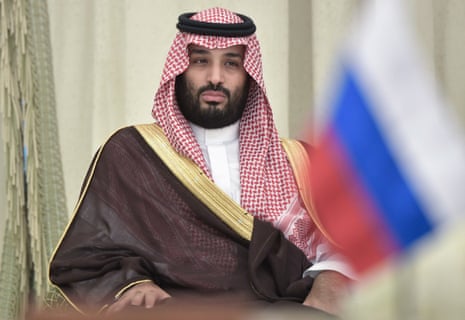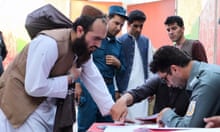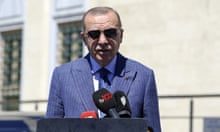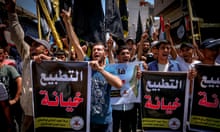In the summer of 2015 Mohammed bin Salman, then Saudi defence minister and third in line to the throne, turned his country’s foreign policy on its head and gave a covert green light for Russia’s intervention in Syria, according to a lawsuit by a former top intelligence official.
In his complaint filed in a federal court in Washington, Saad Aljabri alleges that the abrupt switch of course by the man who is now Saudi Arabia’s crown prince alarmed the then CIA director, John Brennan, who met Aljabri in July and August of 2015 to pass on a rebuke from the Obama administration.
“Brennan expressed concern that defendant bin Salman was encouraging Russian intervention in Syria, at a time when Russia was not yet a party to the war in Syria,” the lawsuit, filed last week in the District of Columbia district court, alleged. “Dr Saad passed Brennan’s message to defendant bin Salman, who responded with fury.”
Aljabri said the meetings with Brennan cost him his job as the second most powerful man in Saudi intelligence and his country’s liaison with the CIA. He later fled Saudi Arabia and is now living in hiding in Canada, where he alleges the crown prince tried to have him killed by a Saudi death squad, shortly after the murder of the Saudi dissident and journalist, Jamal Khashoggi.
Aljabri filed his accusation of attempted extrajudicial killing as a “flagrant violation of US law and international norms and standards” under the Torture Victim Protection Act and the Alien Tort Statute.
Neither the Saudi government nor the Saudi embassy in Washington has commented on the allegations. Aljabri did not provide evidence for his allegations and the Guardian has not been able to independently verify them.
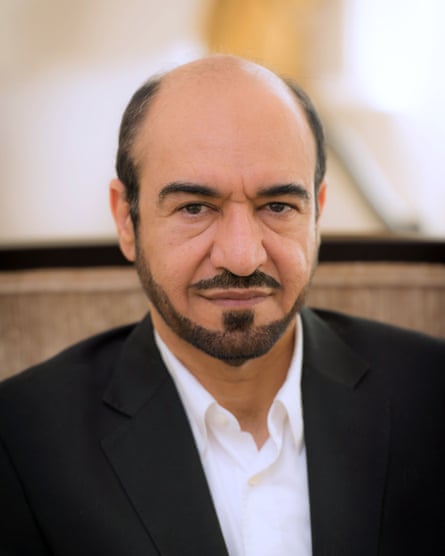
In March Aljabri’s 20-year-old daughter, Sarah and his 21-year-old son Omar, were arrested, and have not been seen since. Aljabri says they are being held as hostages to force him to return home, because of his detailed knowledge of Prince Mohammed’s rise to power. The Royal court has not commented on Aljabri’s children’s whereabouts.
The claim that Prince Mohammed secretly invited Russia to intervene in Syria at a time when Bashar al-Assad was close to falling, is an explosive one. The Saudi monarchy was ostensibly supporting anti-Assad rebels, and Russian bombing of rebel-held cities in support of Assad has since killed tens of thousands of Syrian civilians.
Western diplomats say that soon after Prince Mohammed became defence minister, with the ascent of his father to the Saudi throne following the death of King Abdullah in January 2015, he was strongly influenced by the crown prince of Abu Dhabi, Sheikh Mohammed bin Zayed, another young moderniser with radical ideas.
This week Sheikh Mohammed caught the Arab world by surprise by striking a US-brokered agreement to establish diplomatic relations with Israel.
A source familiar with the sequence of events in 2015 said that Prince Mohammed and Sheikh Mohammed (widely known as MBS and MBZ) met at the Idex arms fair in Abu Dhabi in February.
“That was a turning point in MBS’s ambition and vision and belief,” the source claimed. Sheikh Mohammed is said to have argued that the threat of a Muslim Brotherhood revolution in Syria was worse from the point of view of their Gulf monarchies than Assad’s survival.
The Emirati prince also persuaded his ambitious Saudi counterpart that if he was going to compete with, and eventually oust, his cousin, Mohammad bin Nayef – then deputy crown prince and intelligence chief (and Aljabri’s patron) with close ties to Brennan and the Obama administration – he would have to find friends beyond Washington.
“MBZ said you have to start building new alliances, and you need to pivot to China and Russia and MBZ had a good relationship with Putin,” the source said.
Hassan Hassan, director of the non-state actors program at the Center for Global Policy in Washington, said: “I was privy to some of the high-level conversations regarding the Gulf states’ support for a Russian-led role in Syria after the Yemen war was launched in [March] 2015. At the time, the UAE was pushing for the idea of helping Russia stabilize Syria and enabling the Assad regime to reclaim control of the country.”
“When I read Aljabri’s claim about MBS asking Russia to intervene in Syria, that immediately made sense to me, considering the conversations I heard in 2015 and 2017,” Hassan said.
One of the effects of this drift towards Moscow was a draining of political will and resources from a joint intelligence effort by the US, UK, Turkey, Saudi Arabia, the United Arab Emirates and other members of the Gulf Cooperation Council, in support of an agreed list of Syrian rebel groups.
The initiative which was started by Bin Nayef and Aljabri with CIA assistance, was known as the Riyadh Room because representatives from the parties involved met in a facility in the diplomatic quarter of the Saudi capital, to discuss which factions to back and which were unacceptable.
The Riyadh Room achieved some success in imposing some discipline and structure to western and Gulf support for anti-Assad forces in 2014, but it dissipated in the spring and summer of 2015 with Prince Mohammed’s rise.
In June of that year, Prince Mohammed – by then deputy crown prince – went to St Petersburg where he met Putin. They signed cooperation agreements on oil, space and nuclear energy, but also, according to Aljabri’s account, discussed Russia’s entry into the Syrian war.
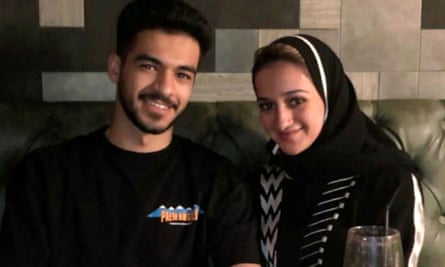
When the CIA heard about these discussions, Brennan asked Aljabri for an urgent meeting in July in Dublin, roughly halfway between their two capitals, to convey US displeasure, according to a source familiar with the exchanges between the two men.
“They [the Americans] were enraged,” the source said. “It was as if Assad was about to be given a knockout punch and MBS gave him the kiss of life.”
Brennan, now retired from public service and working on a memoir, declined to comment on Aljabri’s claims. Saudi officials also did not respond to requests for comment.
A few weeks later, Aljabri met Brennan a second time in the US and at about the same time had talks in London with the British foreign secretary, Philip Hammond, who expressed similar concerns.
When Aljabri reported back on those conversations to the Saudi national security council, Prince Mohammed took it as a direct challenge to his authority, according to the exiled intelligence official, and orchestrated his dismissal on 10 September, less than three weeks before Russia began airstrikes in Syria.
Aljabri remained an adviser to Bin Nayef until May 2017 when he left the kingdom a month before his patron was deposed as crown prince and replaced by Prince Mohammed.
A former diplomat in the region said that the inclusion of the claims about the crown prince, Putin and Russia’s intervention in Syria in Aljabri’s lawsuit in Washington was intended to send a message.
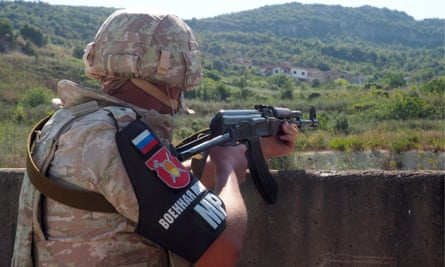
“I assume that the purpose of this deposition is to tell MBS that Saad is not going to back down,” the former diplomat said. “You can arrest one of my sons one of my daughters, but if you persist in this, I have information on you which will hole you below the waterline.”
The retired diplomat said: “He’s signaling that he knows stuff, and some of that is about Syria.”
While the allegation of connivance with Moscow is damaging to the crown prince, most western diplomats argue Russia would have entered the war without covert encouragement from Saudi and Emirati princes. They suggest another visitor in July of 2015 was far more instrumental, the Iranian Revolutionary Guard general, Qassem Soleimani.
In Moscow, according to an account by Reuters, Soleimani unfurled a map of Syria for his Russian counterparts to explain Assad’s precarious position and how Putin’s intervention could turn the tide.
“I don’t think Putin gave a Siberian shit about what the Saudis and Emiratis wanted, basically,” the western former diplomat said. “But I think he would have enjoyed them wanting the Russians to come in, because it was a kick in the teeth for the US.”
